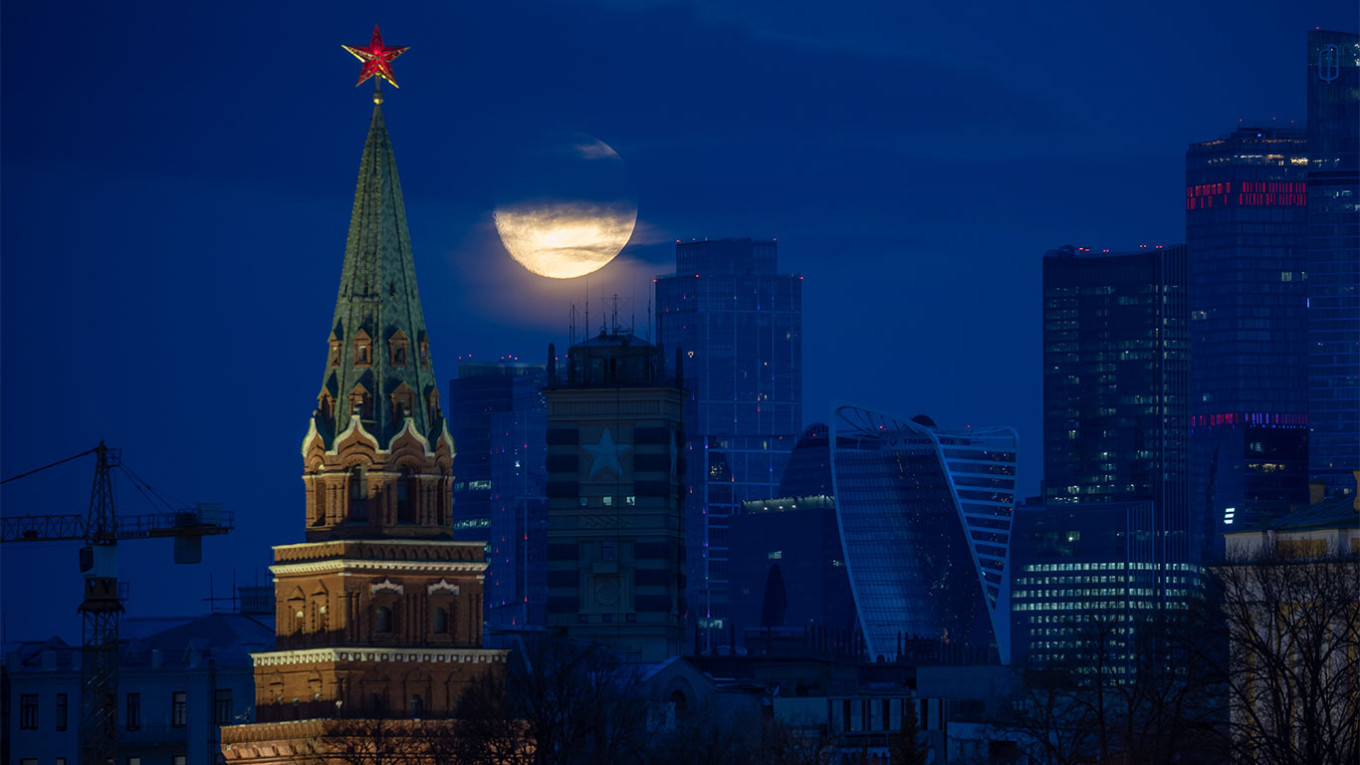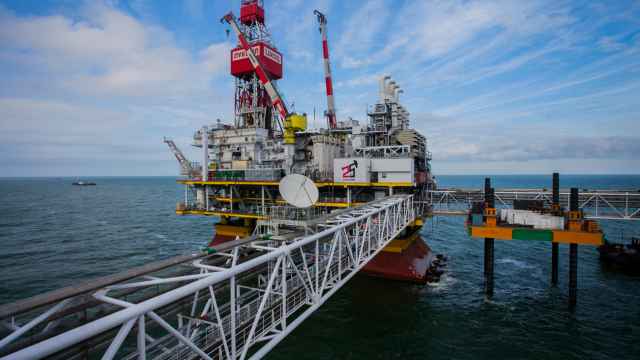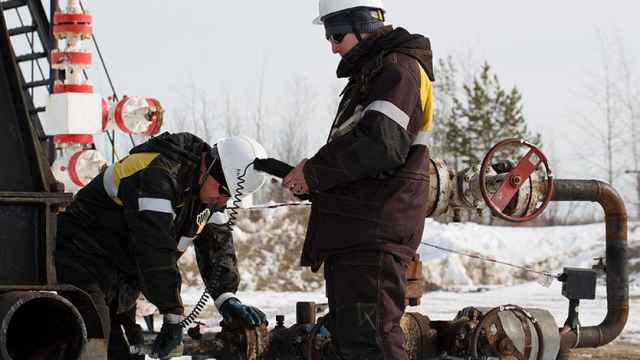Russian authorities are considering forced cuts to federal spending as falling oil prices deplete the reserves needed to fund the war in Ukraine, Bloomberg reported Tuesday, citing an anonymous source familiar with the preliminary discussions.
The government is reportedly exploring a revision to its so-called budget rule, the mechanism that dictates how funds from the National Wealth Fund (NWF) are spent.
Under the current framework, the Finance Ministry taps the NWF to cover shortfalls in oil and gas revenue when the price of Urals crude drops below $60 per barrel. According to Bloomberg's source, this threshold could be lowered to $50 from next year if oil prices stay low.
However, this change would mean reduced access to the NWF, forcing the government to slash spending in other areas.
Russia's 2025 draft budget had assumed an average Urals oil price of $69.70 per barrel — but by March, the price had dipped below $60. It averaged just $54 in April and fell further to $49 in early May.
As a result, tax revenues from raw materials in the first quarter came in 10% below expectations.
The Economic Development Ministry cut its oil price forecast for 2025 to $56 per barrel in response, while the Finance Ministry revised its budget projections to expect oil and gas revenues falling 2.6 trillion rubles ($32 billion) short. That would leave a budget deficit of 3.8 trillion rubles ($46.8 billion) — the highest amount since the pandemic.
Lowering the fiscal rule threshold to $50 could require spending cuts of 1.5 trillion to 1.6 trillion rubles ($18.4 billion to $19.7 billion), according to Natalia Orlova, chief economist at Alfa Bank. Any decision to curb spending, she warned, would be painful for budget recipients.
"Geopolitical priorities still take precedence," she noted.
A central challenge is military spending.
This year, the Russian government is expected to allocate roughly 30% of the national budget, or 13.2 trillion rubles ($162.6 billion), to the military and defense procurement — the highest share since the Soviet era.
Military expenditures are unlikely to face cuts. Civilian programs, many of which have already had funding reduced, are more likely to bear the brunt, said Dmitry Polevoy, chief investment officer at Astra Asset Management.
But the Kremlin’s options are limited.
“The Finance Ministry sees that there aren’t enough reserves to weather an extended period of low prices,” Polevoy said.
Since the invasion of Ukraine, authorities have spent two-thirds of the NWF’s liquid assets to plug budget gaps and prop up state corporations. The fund had just $39.5 billion in liquid assets in April, the lowest level since the fund was created in 2008.
Without changes to the budget rule, the Finance Ministry is expected to spend at least 800 billion rubles ($9.8 billion) from the NWF this year to offset lost oil revenues. Another 1 trillion rubles ($12.3 billion) is spent annually on infrastructure megaprojects and support for state-owned companies.
Analysts at Gazprombank estimate that the NWF’s assets will run out in two years with oil prices of around $50 per barrel — and after just over one year if prices drop to $40.
The growing pressure on state finances is likely to increase the risk of new non-oil tax hikes, Polevoy warned.
A Message from The Moscow Times:
Dear readers,
We are facing unprecedented challenges. Russia's Prosecutor General's Office has designated The Moscow Times as an "undesirable" organization, criminalizing our work and putting our staff at risk of prosecution. This follows our earlier unjust labeling as a "foreign agent."
These actions are direct attempts to silence independent journalism in Russia. The authorities claim our work "discredits the decisions of the Russian leadership." We see things differently: we strive to provide accurate, unbiased reporting on Russia.
We, the journalists of The Moscow Times, refuse to be silenced. But to continue our work, we need your help.
Your support, no matter how small, makes a world of difference. If you can, please support us monthly starting from just $2. It's quick to set up, and every contribution makes a significant impact.
By supporting The Moscow Times, you're defending open, independent journalism in the face of repression. Thank you for standing with us.
Remind me later.






